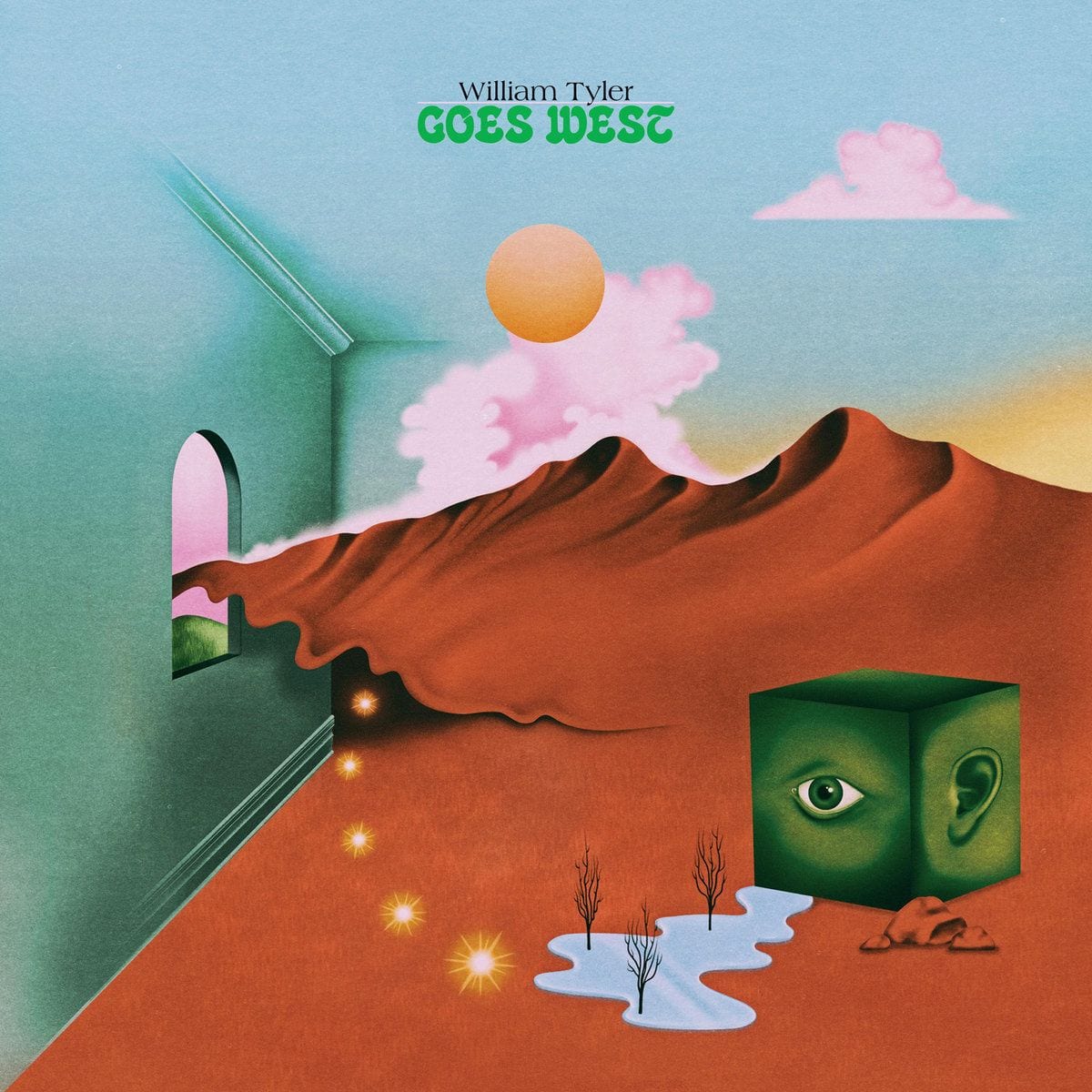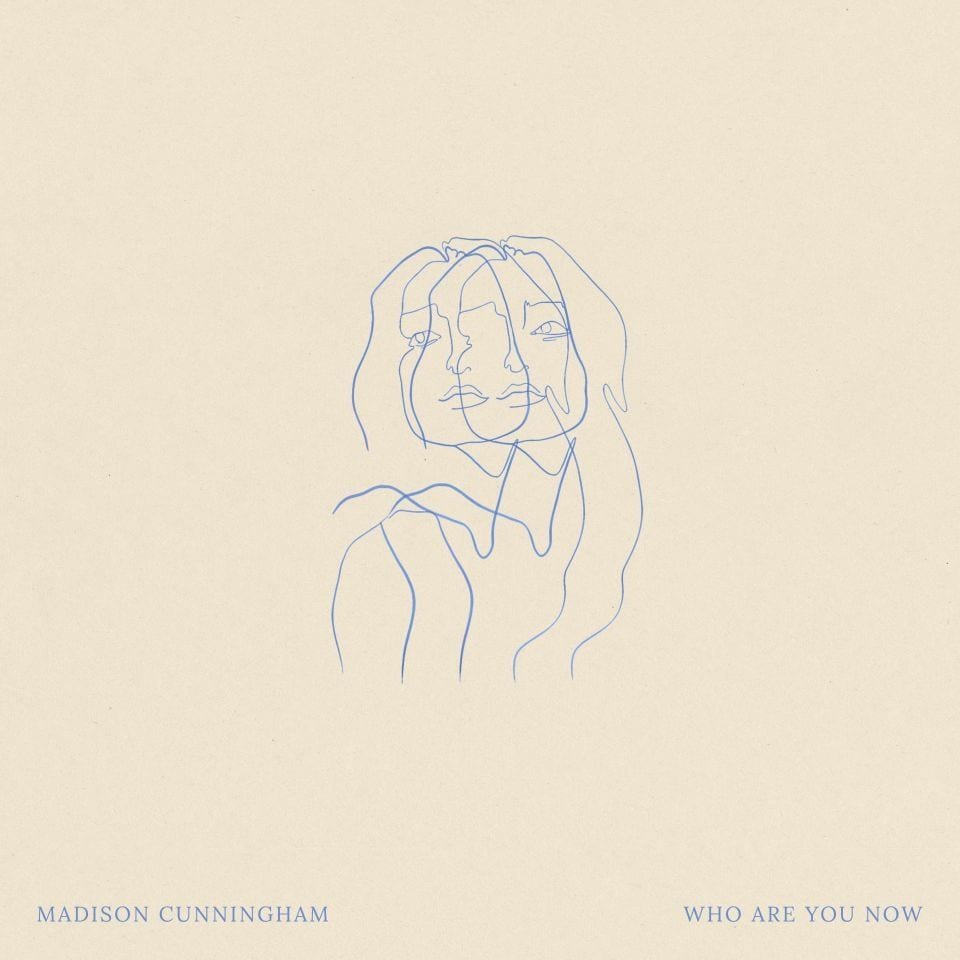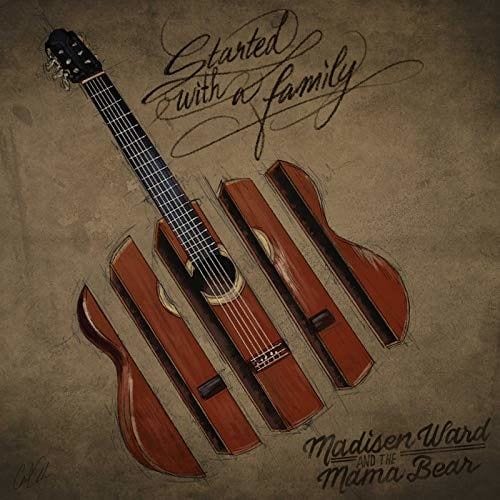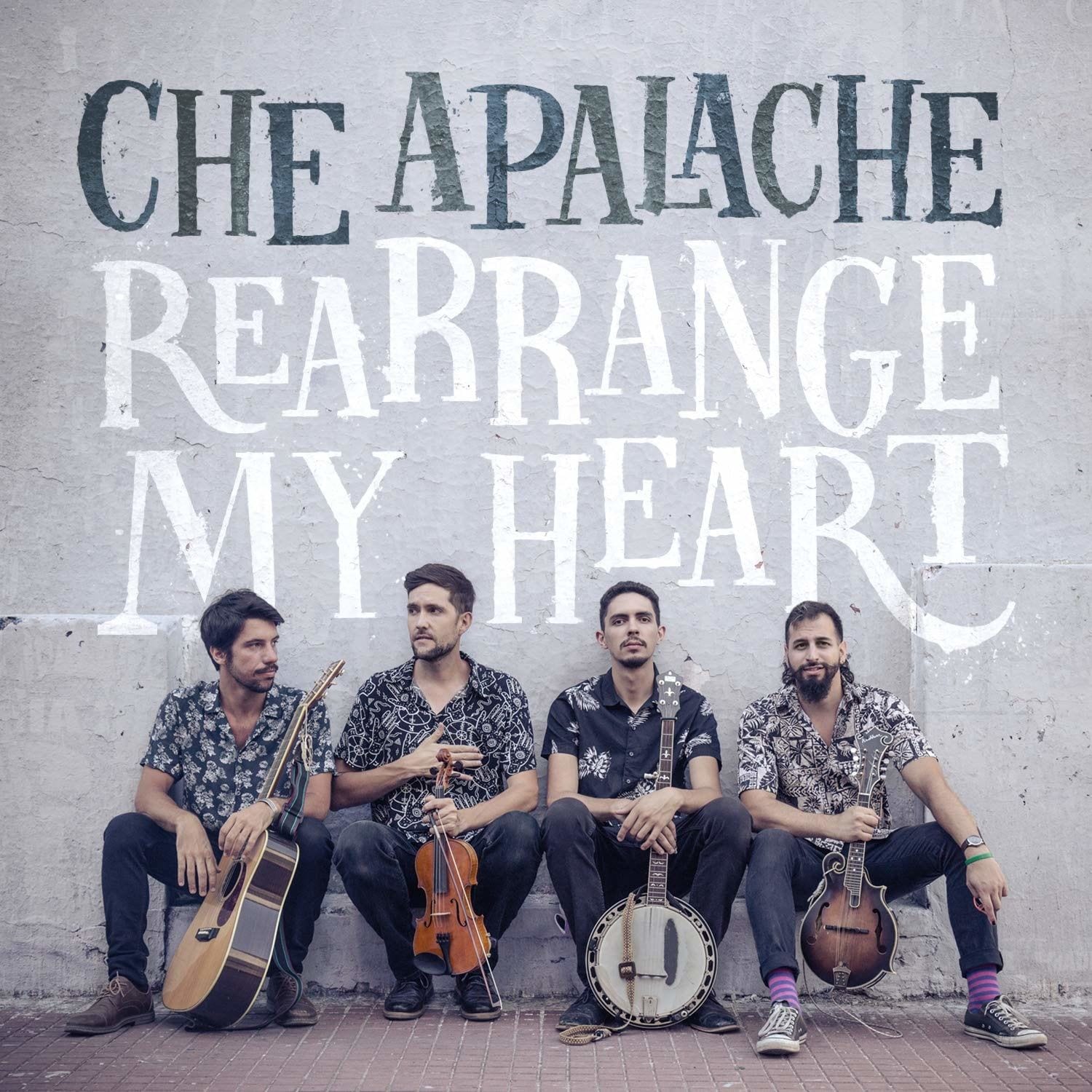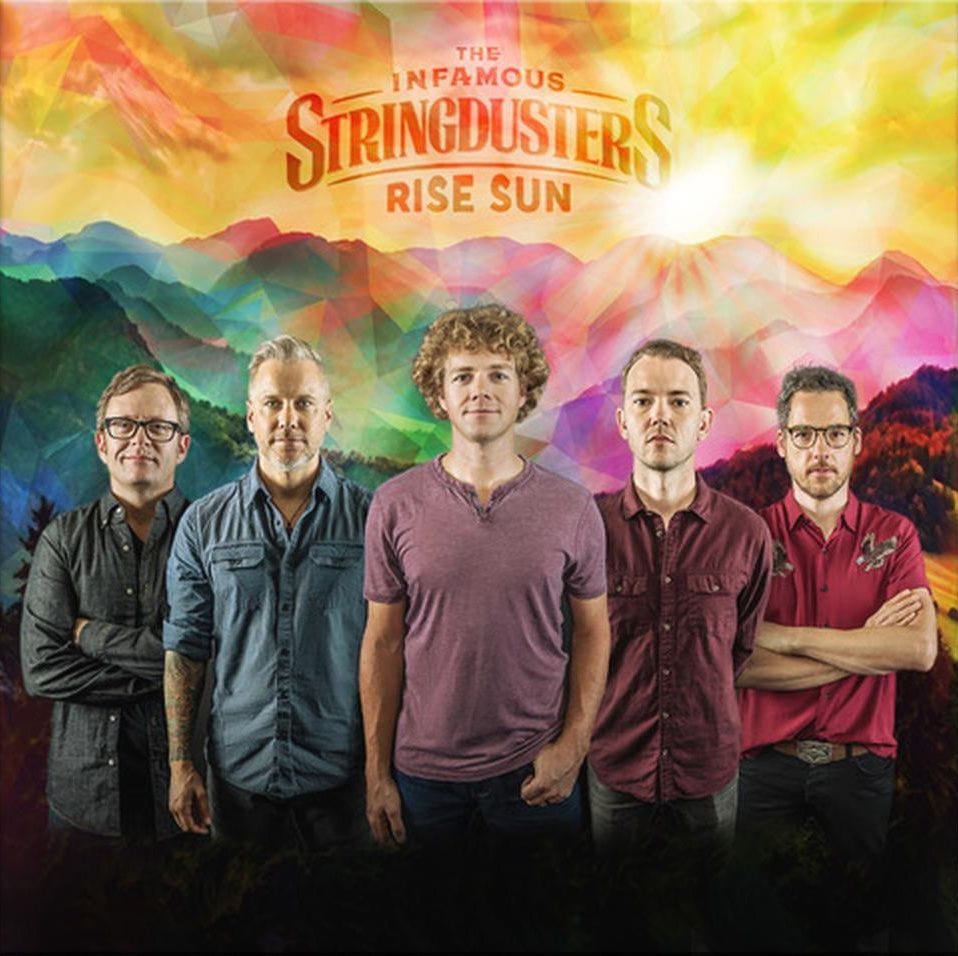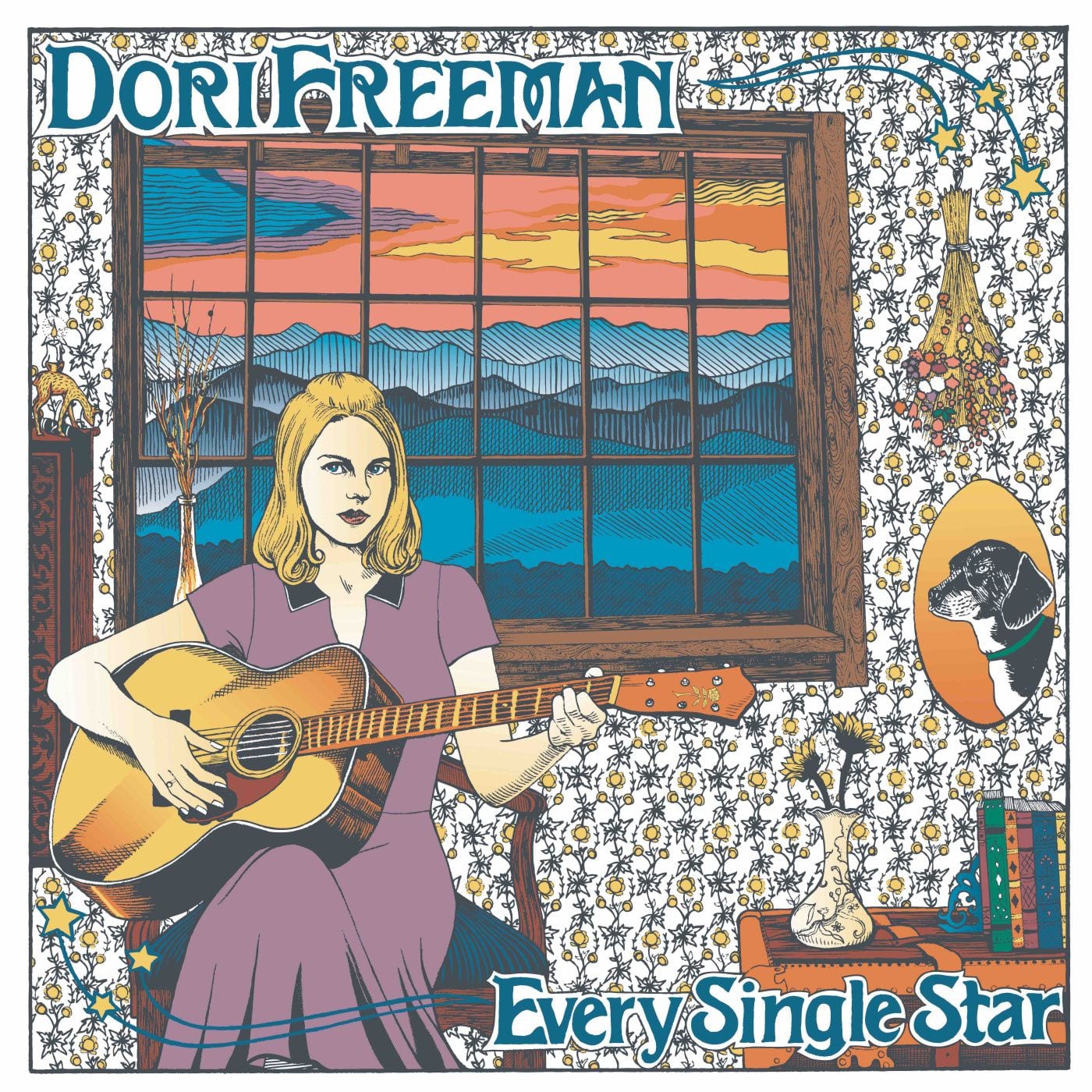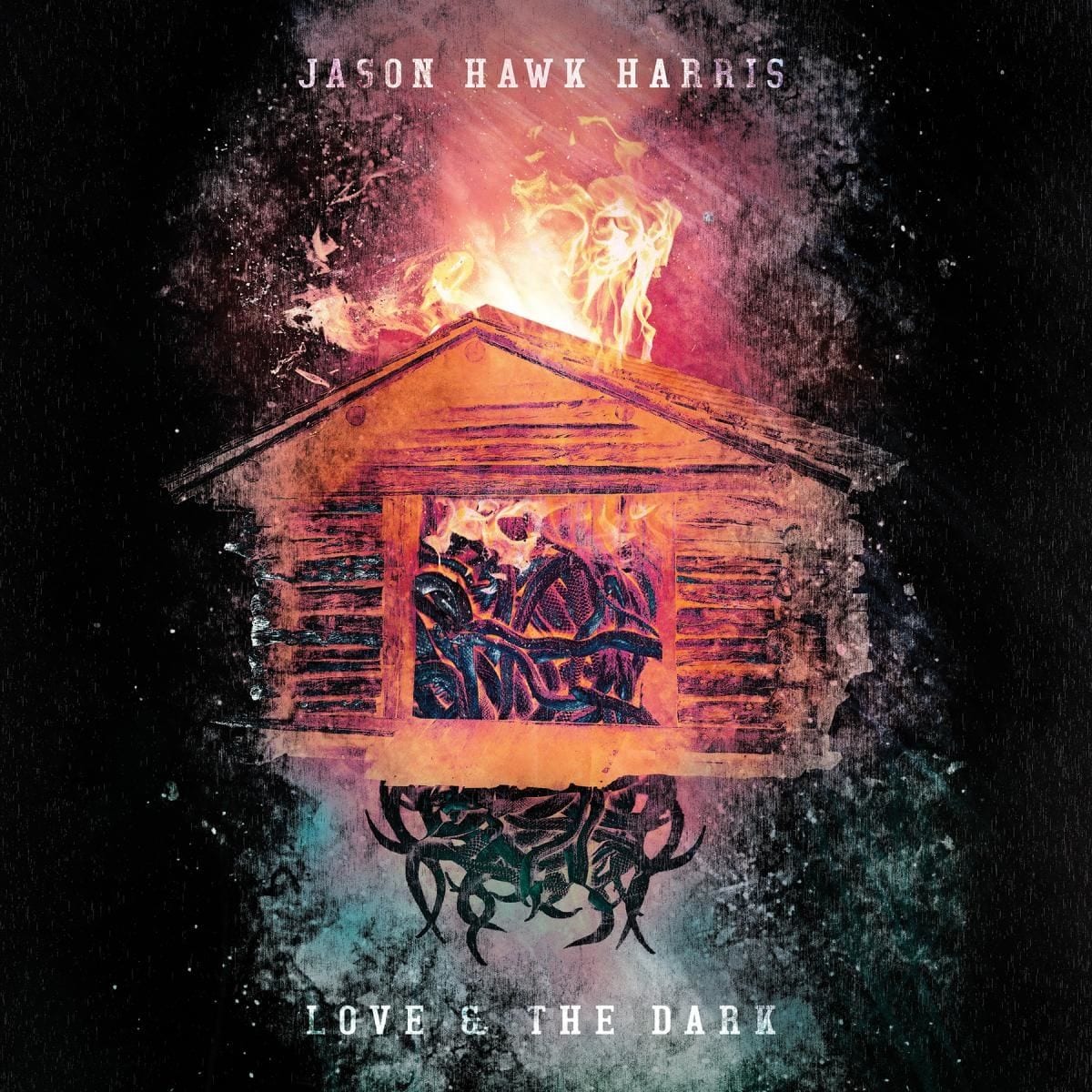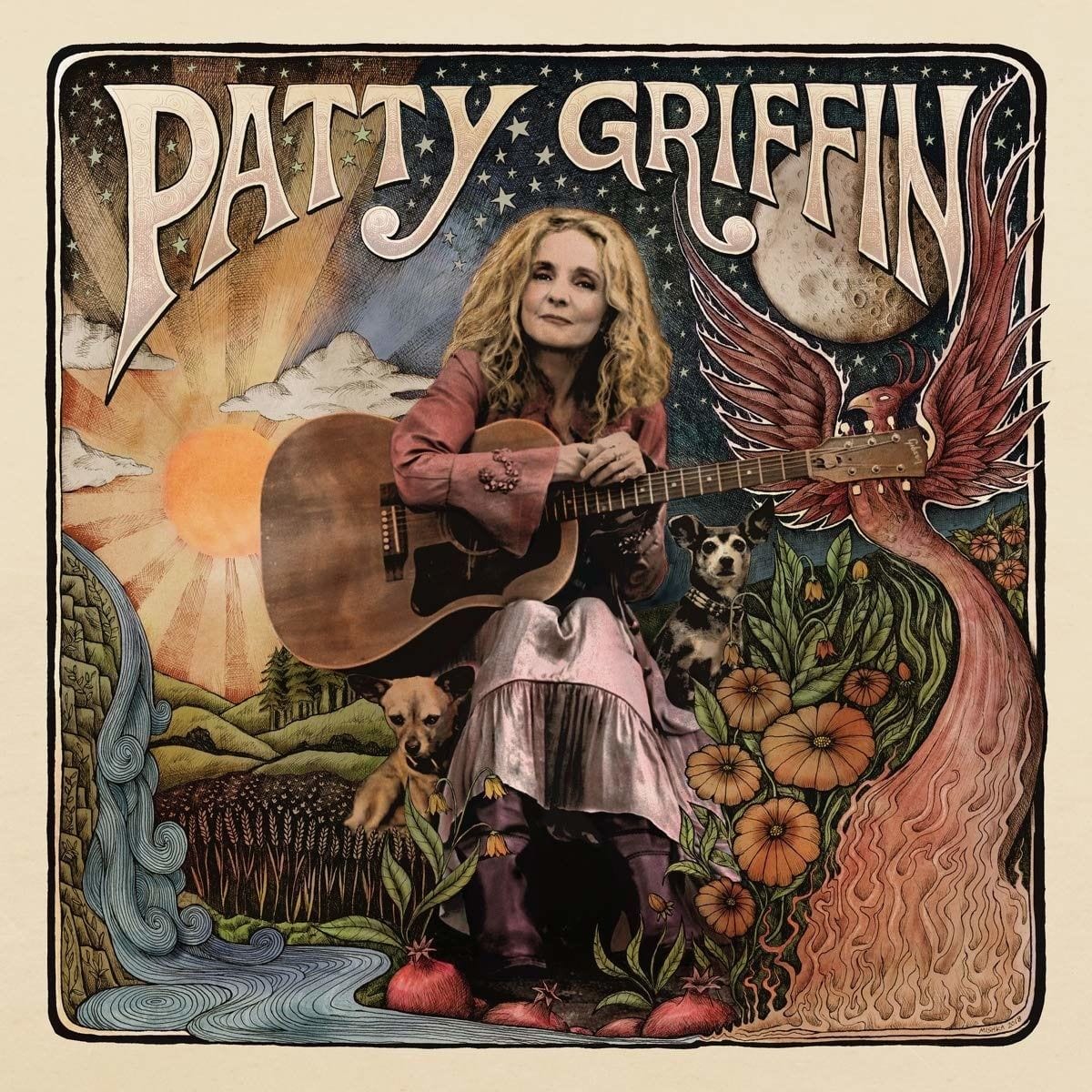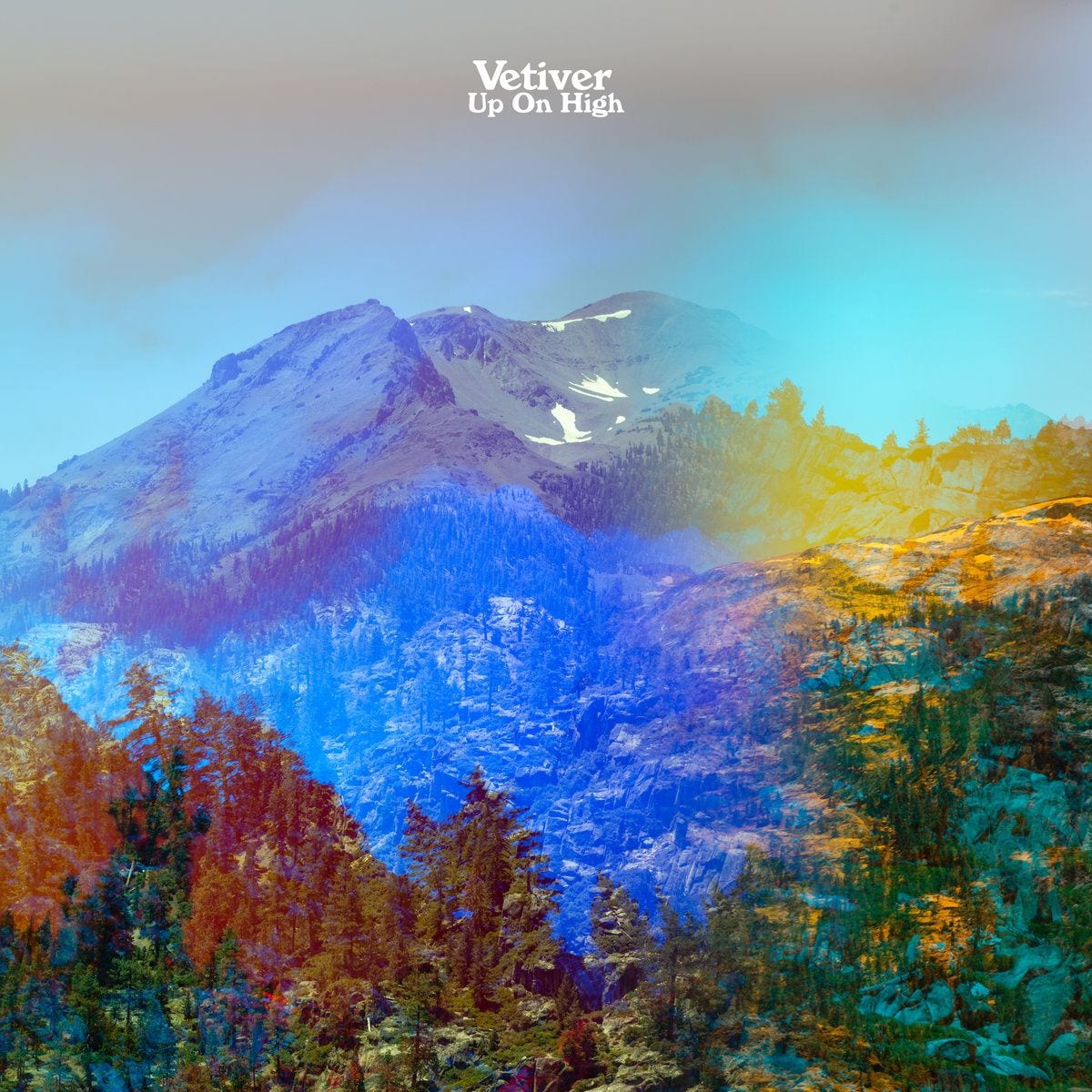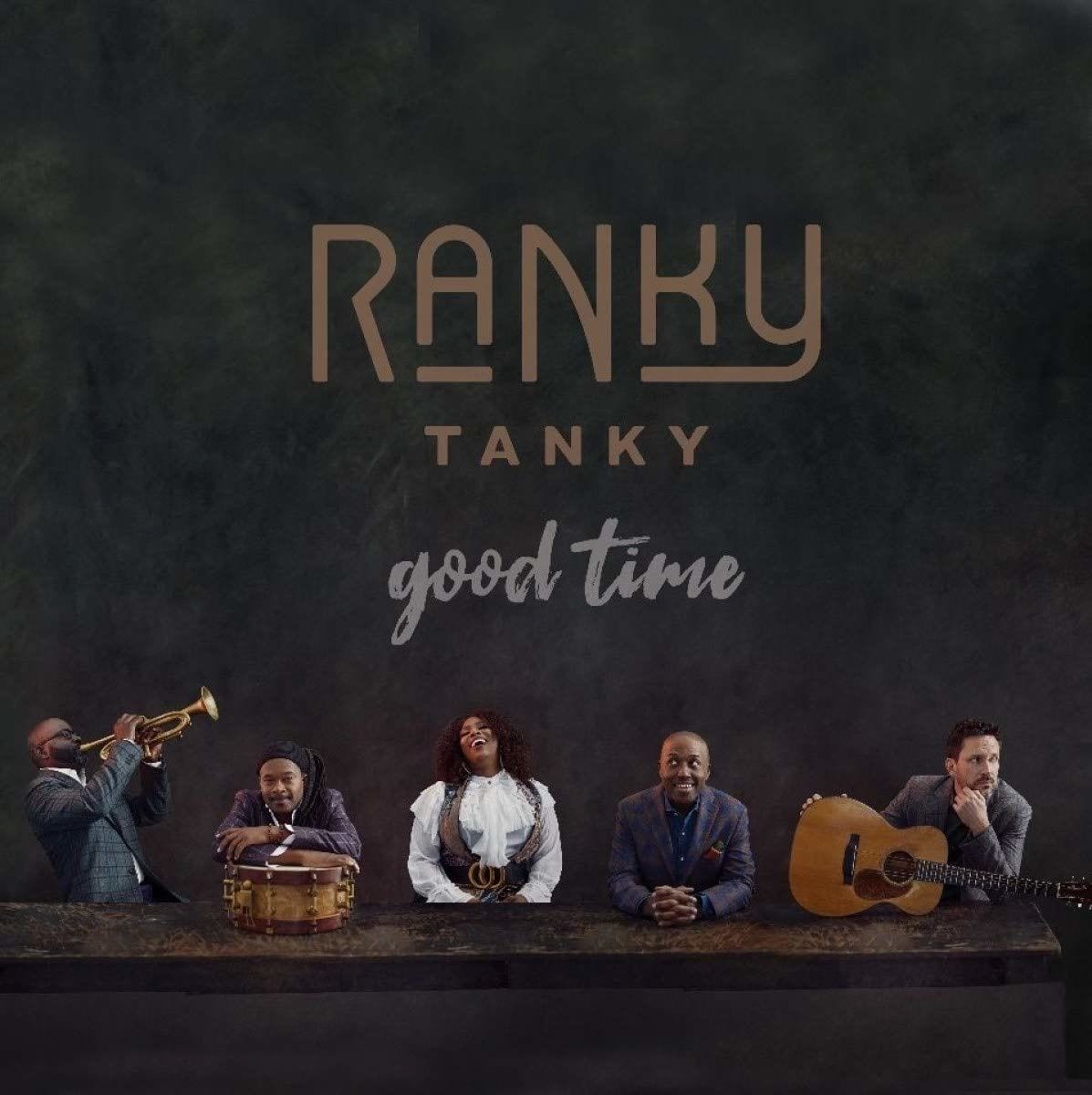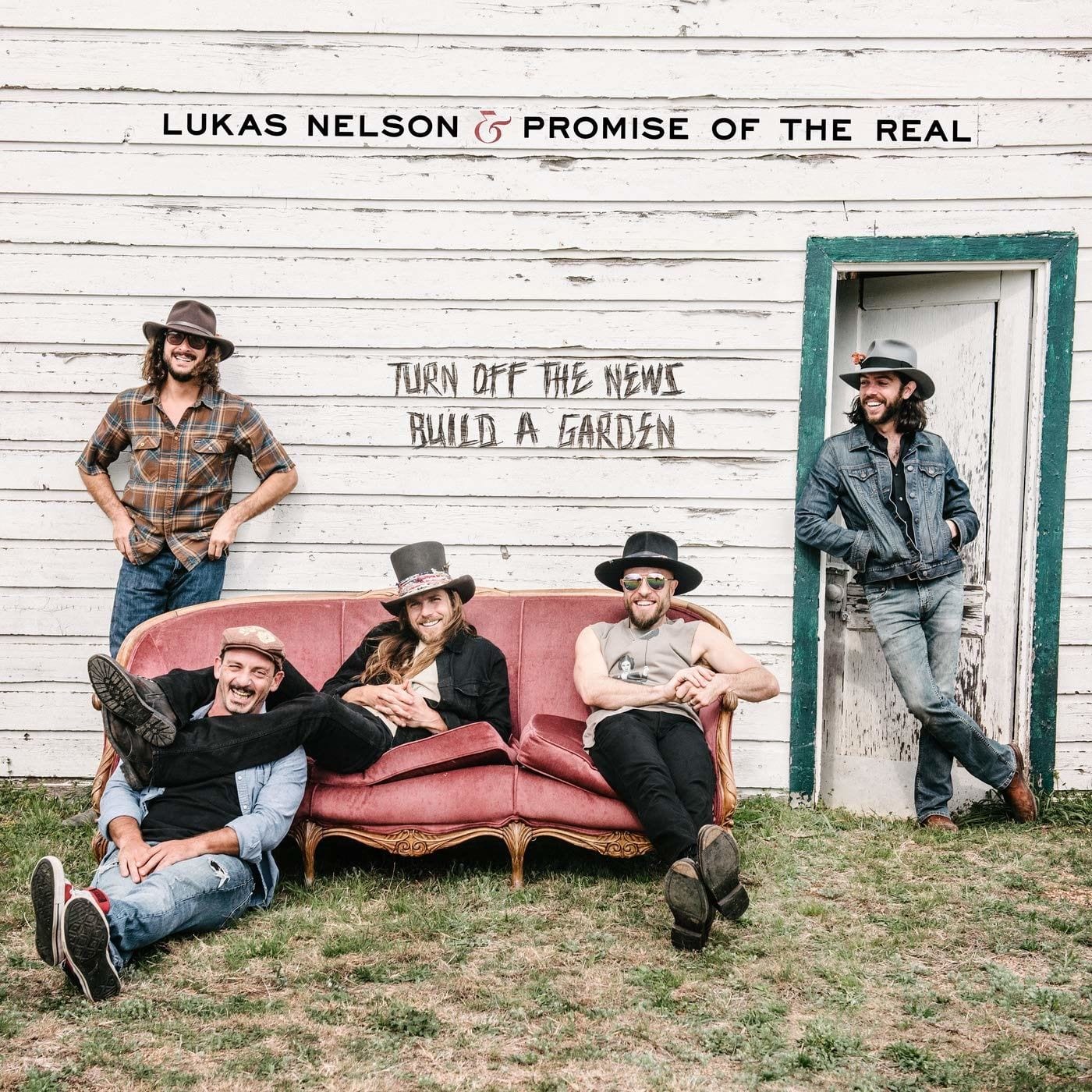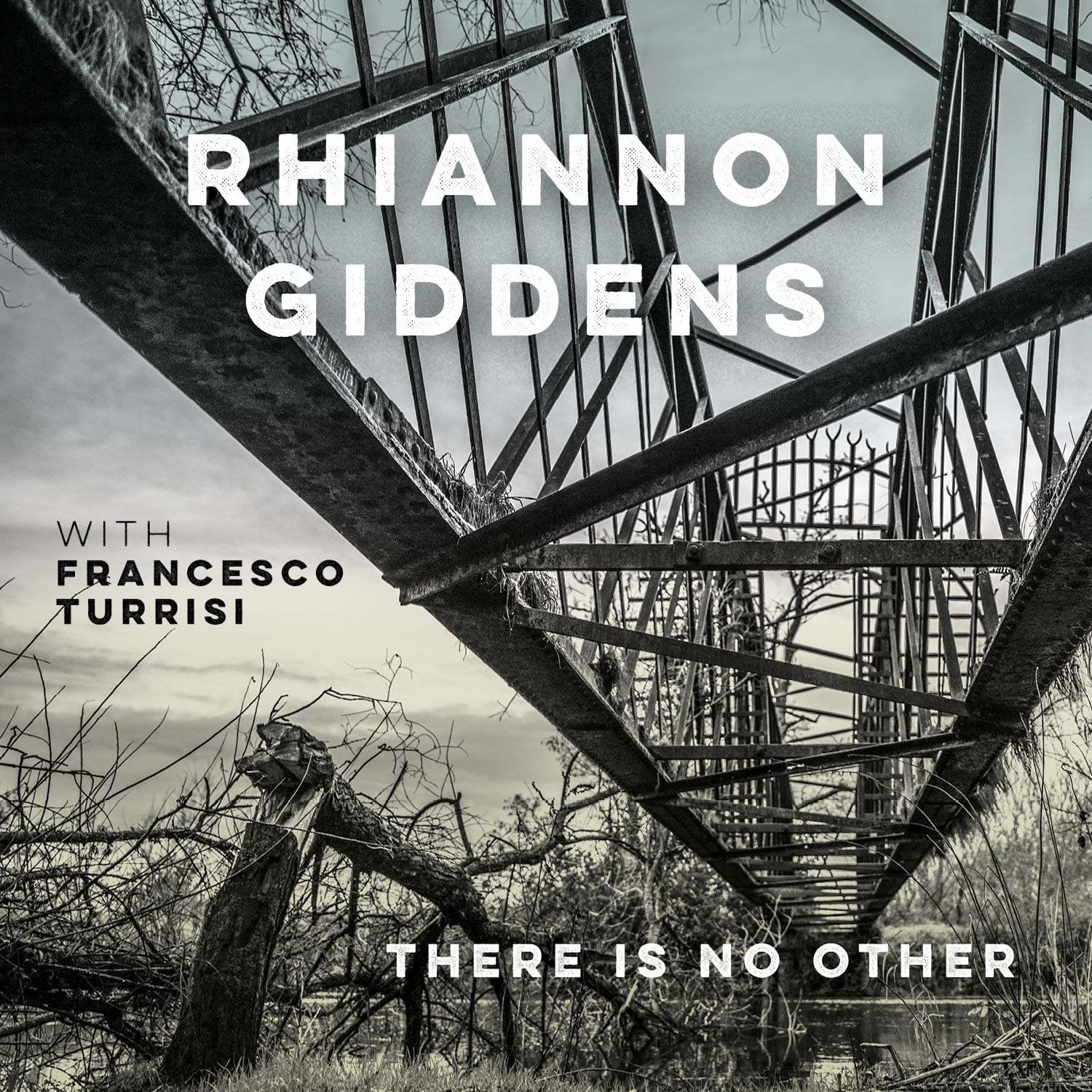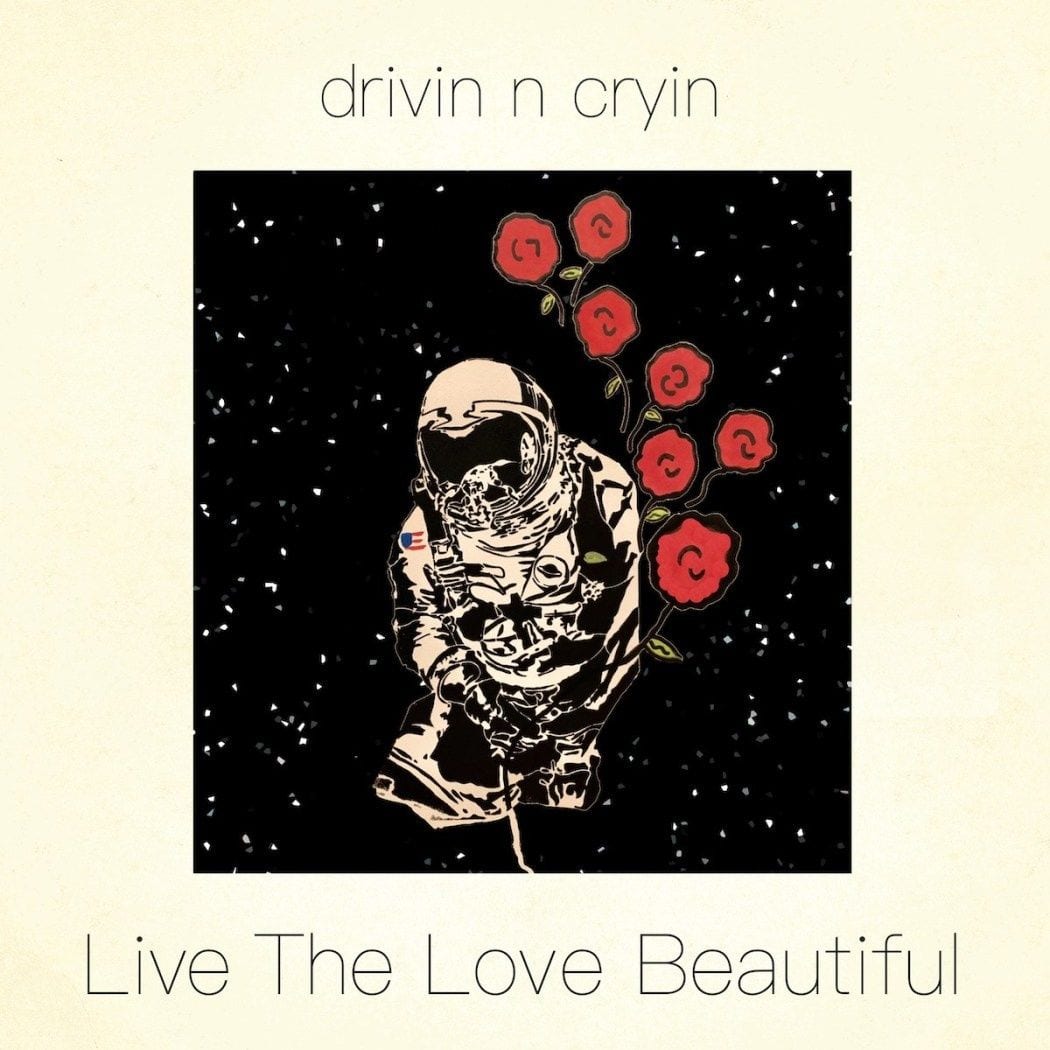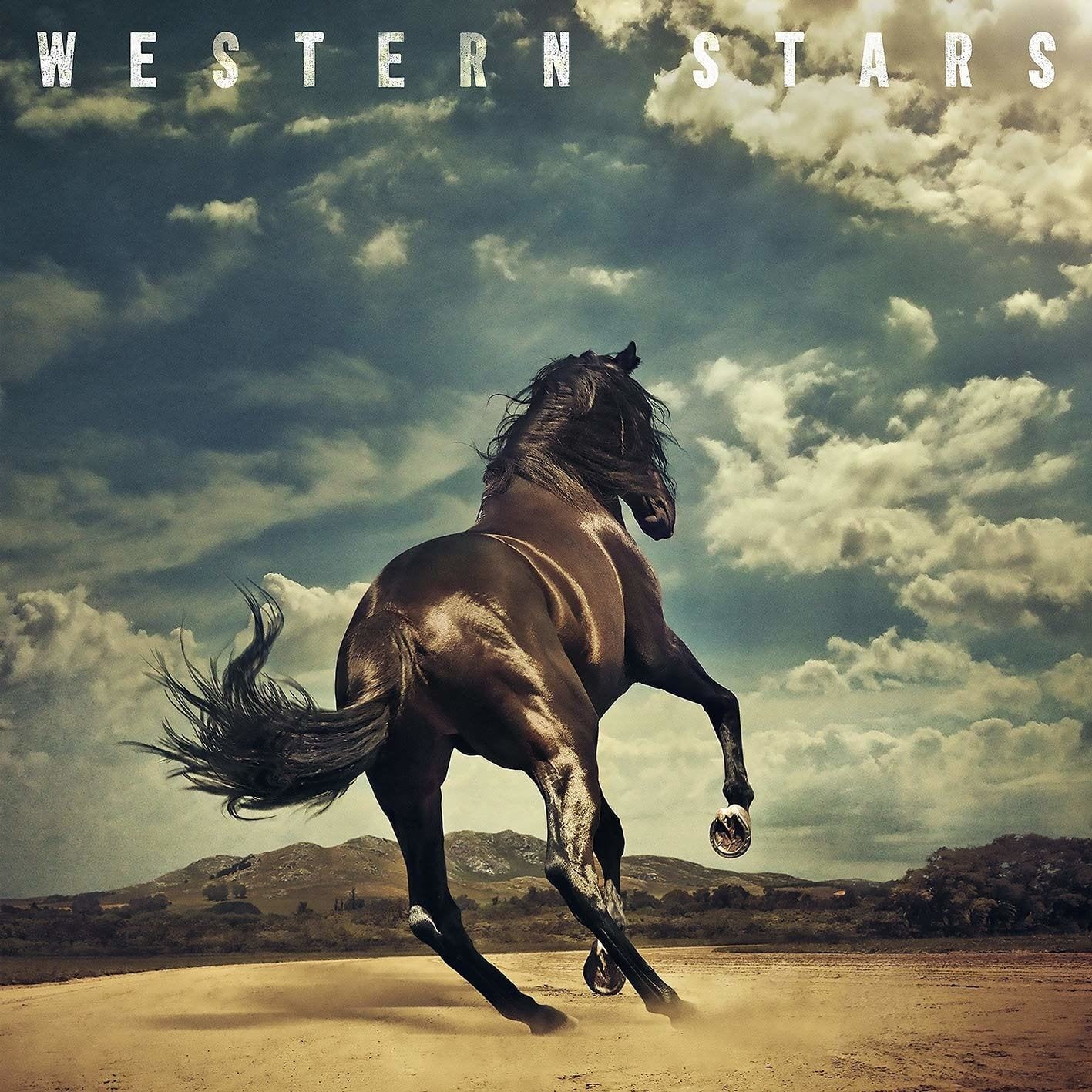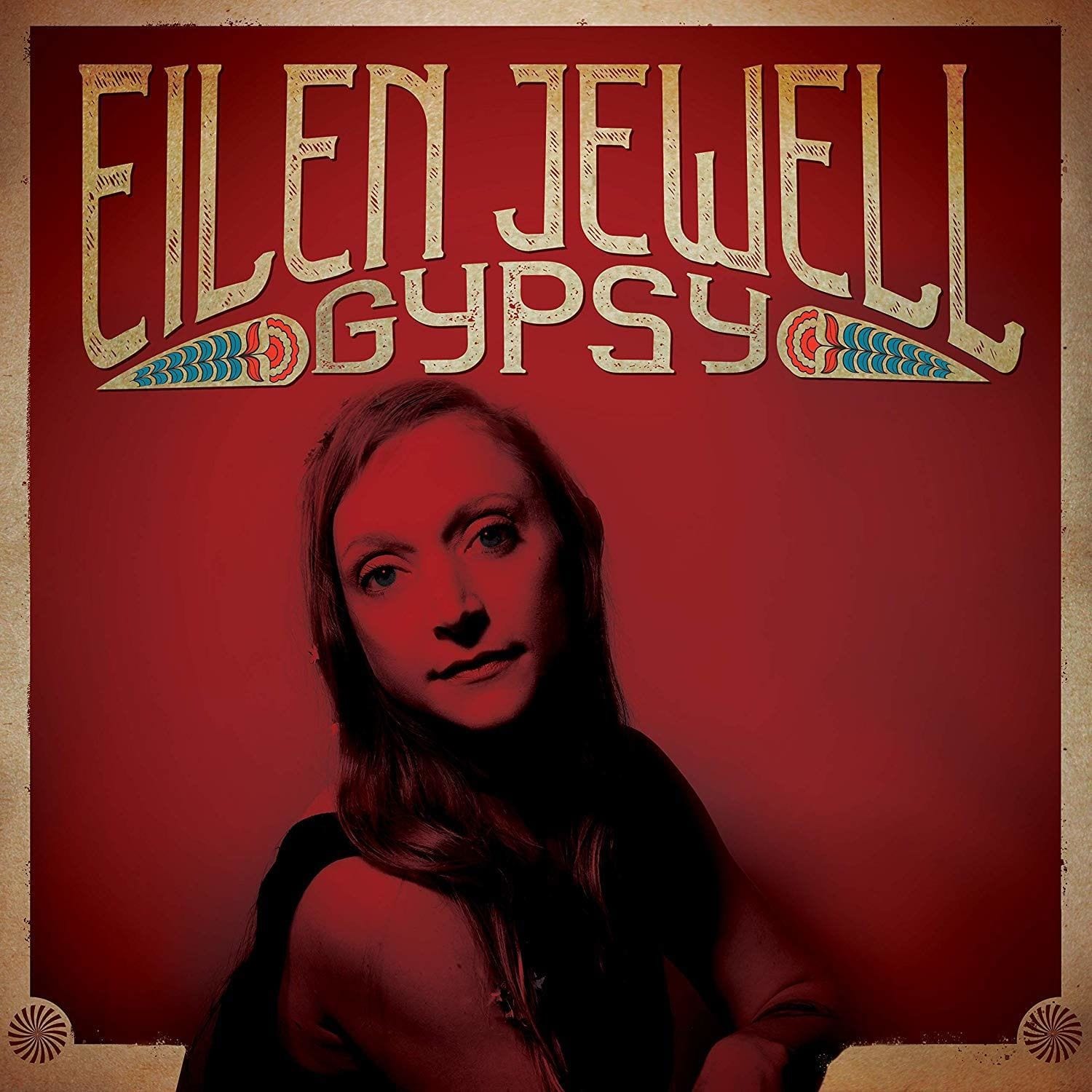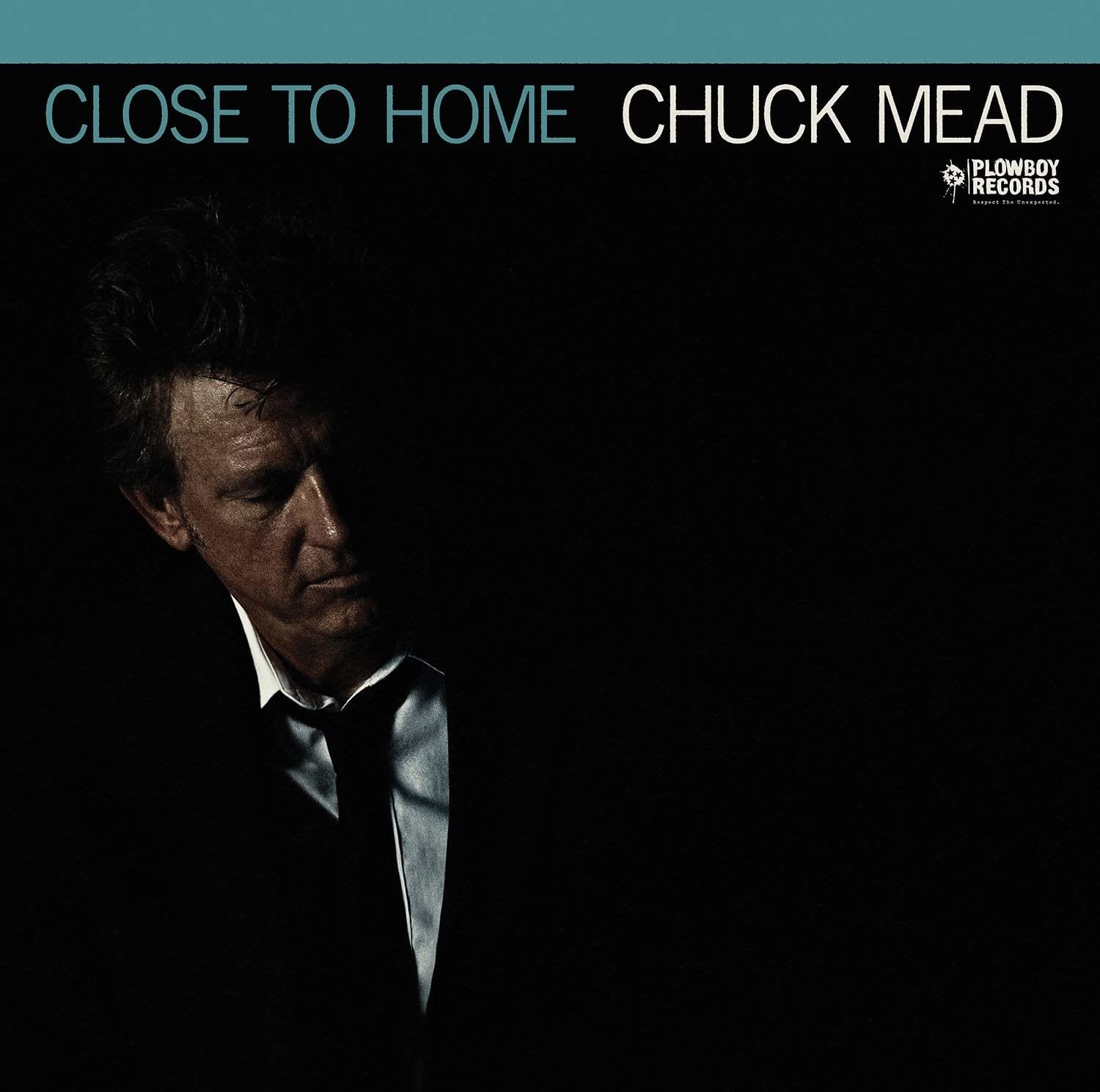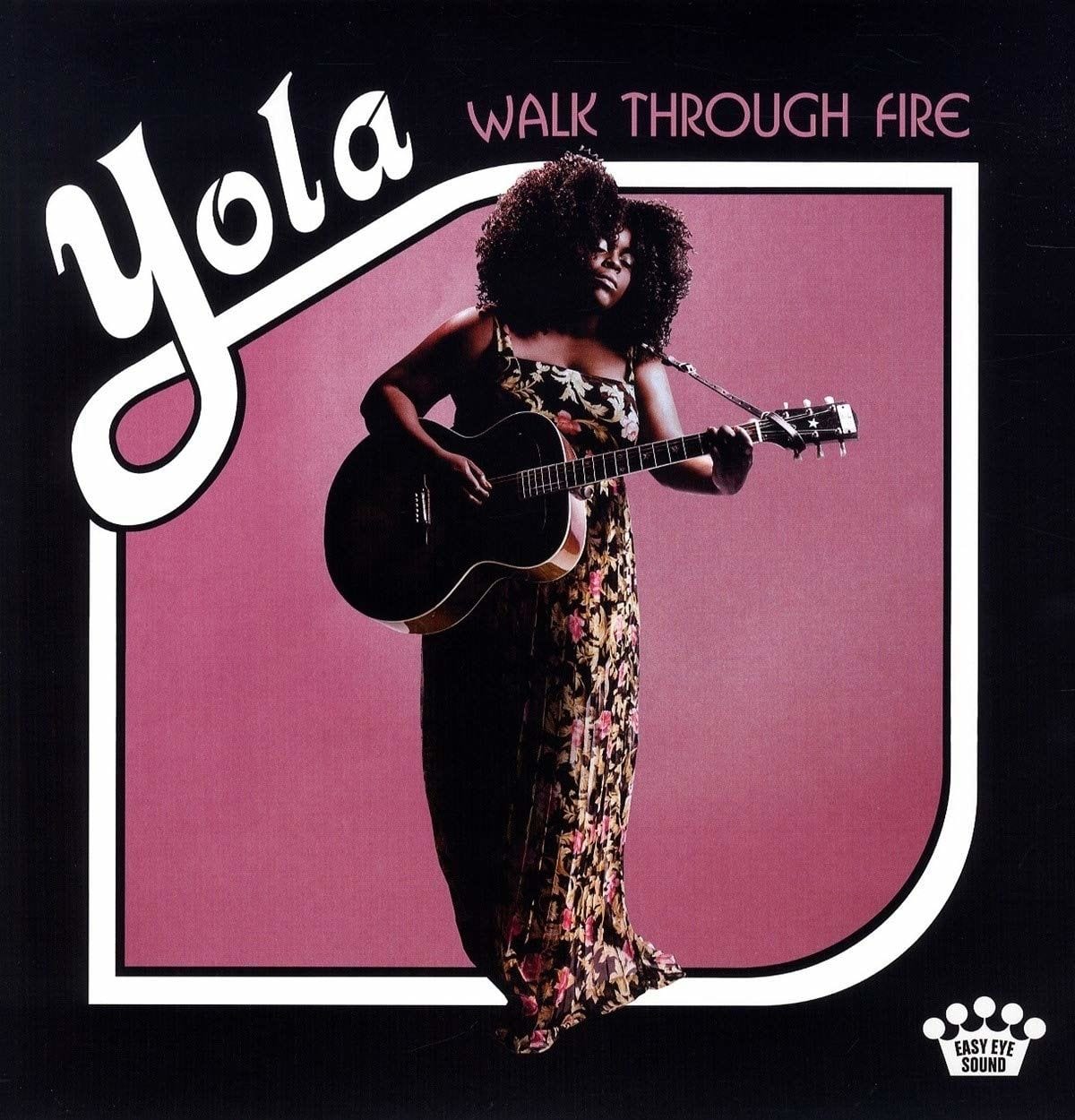William Tyler — Goes West [Merge]
In which our hero crosses the frontier line to settle into a long, peaceful picaresque of balmy, aromatic instrumentals. The album is called Goes West, and it indeed follows Tyler’s guitar, full of deft fingerpicking and fret-fondling switchbacks, through cinematic soundtracks to open vistas, desert plains, and singing rivers. If Tyler is breaking no new ground here, he is making the brightest, loveliest album of his career, which manages through nimble-knuckled hikes across so many gorgeous melodies and satisfying refrains, to also be his most emotionally uplifting album. Beautifully composed and performed, Goes West was the first great Americana album of the year, and it’s one timeless enough that the sun will never set on it. – Steve Leftridge
Madison Cunningham — Who Are You Now [UMG]
On her second full-length album, North Carolina-native and Grammy-nominated musician Madison Cunningham pushes the boundaries of Americana music by fusing pop, rock, blues, country, and gospel into a set of songs that are musically rich and lyrically diverse. The 22-year-old even acknowledges this diverse array of influences in her dead-on album title, Who Are You Now. It’s not a question, either; it’s a bold statement of identity from an artist who is finding her stride and operating at the top of her game. No wonder Andrew Bird, Chris Thile, and John Mayer have sung her praises and come calling on her for vocal and guitar work in new projects. But Cunningham is her own voice and doesn’t need their help.
“Pin It Down” is a deep groove that takes flight once Cunningham’s voice enters the mix, “Trouble Found Me” swings and tilts with pleading vocal lines, and “L.A. (Looking Alive)” adds elements of world music to a breezy shuffle. Cunningham sounds like a musician with decades of experience. As she stays on her path, it’s easy to see her unique style and lyrical substance carrying her off to a lengthy and fruitful career. – Scott Elingburg
Madisen Ward & the Mama Bear – Started with a Family [Starts with Music]
As its name implies, Started with a Family brings Madisen Ward & the Mama Bear back to their roots. The band began as Madisen Ward and his mother, Ruth, playing as a folk duo. Their debut LP, Skeleton Crew, became a fast hit amidst the indie-folk and Americana crowds for electrifying, oftentimes cinematic performances from a fuller band. Started with a Family, strips things back to the initial architecture—the mother-and-son duo’s mighty heart. It’s a homegrown collection of songs that, in its best moments, transports listeners back into the living room and kitchen where so many folk performances of this ilk have so often transpired. This brand of communal Americana is an infectious family affair. – Jonathan Frahm
Che Apalache – Rearrange My Heart [Free Dirt]
Che Apalache are very much an American band: A North, Central, and South American band. Formed in Buenos Aires, Argentina, by U.S. expatriate singer/songwriter/fiddler Joe Troop, the band includes Argentinians Franco Martino and Martin Bobrik, and Mexican Pau Barjau. Troop brings his early love of traditional bluegrass to Che Apalache’s sound, but it is cross-pollinated with the varied influences of his bandmates, resulting in an Americana that happens to encompass all the Americas. The resulting album, Rearrange My Heart, has recently been nominated for a Best Folk Album Grammy award.
Mixing the sounds of traditional Appalachia with Latin and South American influences creates a platform for Che Apalache to meditate on the idea of identity, which the band does through Rearrange My Heart. Identity isn’t a new topic for Joe Troop, though. Troop has stated in interviews that, as a North Carolina teenager, he discovered his queerness at around the same age he discovered his love of bluegrass. “The Dreamer”, a traditional bluegrass ballad, tells the story of a fellow North Carolina musician whose family immigrated from Mexico. In the a cappella gospel tune, “The Wall”, Troop and company bluntly state that if such a structure is built along the southern US border that “we’ll have to knock it down”. The “Shut Up and Sing” crowd probably won’t like such sentiments, but Che Apalache wouldn’t have it any other way. – Rich Wilhelm
The Infamous Stringdusters – Rise Sun [Time Tape]
Modern bluegrass band the Infamous Stringdusters open their Rise Sun album with handclaps and a plea for the sun to emerge and dispel the darkness. From those first moments, the ambitious Rise Sun is all about looking for the light. Rise Sun clocks in at nearly an hour-long, making it an evocative soundtrack for solitary early morning road trips. Obvious care was taken in the sequencing of the album, with extended intros and outros that give Rise Sun a seamless flow.
Though Rise Sun isn’t exactly a concept album, the Stringdusters clearly meant for it to be an album that should be listened to in order, from beginning to end, for maximum impact. Fortunately, the musical interplay of the five band members and the lyrical introspection more than justify the time investment to fully appreciate the album, which touches on traditional bluegrass sounds, even as it expands on them. Rise Sun closes with “Truth and Love”, a song that suggests listeners let the line shine from their souls. In another context, that sentiment might sound trite. At the end of Rise Sun, though, “seek the truth/find your love” feels like an epiphany. – Rich Wilhelm
Dori Freeman – Every Single Star [Blue Hens]
A rising voice in the Americana circuit since her self-titled debut album in 2016, Every Single Star compounds the feminist themes of her previous work with a dedication towards exploring a newer space in her heart as a mother. Inspired by very palpable feelings of conflict between her breakout career as an artist and motherhood, Freeman explores these themes throughout her latest. It’s as refreshing as it is empowering to see an artist detailing the highs and lows of her position throughout a full-length album. Every Single Star is dedicated to her daughter, her husband, and as ever to the Appalachian traditions in her music. It’s an honest reflection of how the road can sometimes take its toll on a mother’s heart, confidently wrapped in the beautiful country-folk aesthetic that Freeman has always communicated so well. – Jonathan Frahm
Jason Hawk Harris — Love and the Dark [Bloodshot]
Love and the Dark is a breakout record; a record that should put Jason Hawk Harris in league with Americana stalwarts such as Jason Isbell and Ryan Bingham. High praise for Harris given that this is his debut album under his name, but Love and the Dark is a deep well of emotional turmoil and redemptive actions, and I can’t get enough of it. Getting lost inside these songs is pure catharsis, and listening to Harris’s sturdy voice sing about love and loss is nothing short of healing. “Cussing at the Light” and “Confused” are punk-tinged bar-room stompers about drinking and the bewildering religion of love, while “Phantom Limb” and “Grandfather” are roiling meditations on despair and kinship. But Harris’s arrival is announced best by album-opener “The Smoke and the Stars”, a big, wild crescendo of a song that boils upward into a burning mix of pedal steel, Texas guitar, and clanging cymbals. Harris writes love songs spiked with pain and pleasure, which makes him a natural heir to the likes of Hank Williams and Dolly Parton. Don’t sleep on Love and the Dark; you’ll get left out in the cold if you do. – Scott Elingburg
Patty Griffin — Patty Griffin [PGM]
As her first recording after surviving her battle with breast cancer, Patty Griffin named the album Patty Griffin. To give one’s tenth album across a 25-year career an eponymous name is to imply reinstating one’s artistic self-actuality and making one’s most personal statement to date. On a rich, deeply poetic set of songs, Griffin has done just that, spreading her voice — sounding varyingly open and pinched, effervescent and weary, hopeful and resigned — across red-dust gospel blues, Celtic ballads, and spare folk meditations. Survival is a controlling thread of the collections, both taking stock of her past (“What I Remember”, “Where I Come From”) and staring down the final line of mortality (“Hourglass”). The album’s centerpiece, “River”, the latest entry into Griffin’s timeless canon of classics, both a moving narrative song and a central metaphor for the album and this great American songwriter’s indelible songcraft and resilience. – Steve Leftridge
Vetiver — Up on High [Mama Bird]
Andy Cabic uses Vetiver as the primary songwriting vehicle for his San Francisco-bred brand of acoustic folk. With a voice as sunny as the golden California hills, Cabic imbues his songs with sparkle, wedging the natural world into his laid-back observations and reflections. After spending much of the new millennium lumped in with freak-folk artists like Fleet Foxes, Devendra Banhart, and Joanna Newsome, Up on High finds Cabic crafting his own identity amongst a once-crowded field of players. From opener “The Living End” through closer “Lost (In Your Eyes)”, Cabic rolls and strums his guitar through seasons and guides the tracks with a steady hand and an easy groove. The songs pick up in tempo (“Swaying,” “Wanted, Never Asked”), swing in spots (“Hold Tight”), and tackle universal themes (“All We Could Want”). Cabic is a constant on all the tracks, and his songs that sound and feel like they might carry you away on a breeze. When he adds additional instruments, they’re direct and spread around evenly. Up on High sounds like a new, comfortable brand of West Coast Americana, familiar and revelatory. It’s an album that we’ve been waiting to hear but might not have known about it until it materialized. – Scott Elingburg
Andrew Bird — My Finest Work Yet [Loma Vista]
On the cover of Andrew Bird’s latest album, the multi-faceted musician portrays the French revolutionary Jean-Paul Marat. With tongue firmly in cheek, the record is dubbed, My Finest Work Yet, a silly name, one that was an inside joke among Bird and his musicians and engineers—until it wasn’t. My Finest Work Yet is the best offering of songs Bird has delivered since 2007’s Armchair Apocrypha. Armed, as always, with his violin, some sharp melodies, and a direct political slant, Bird has distilled the drudgery of our days down into lovely, encouraging songs that stay in your ears for days.
Album-opener “Sisyphus” announces the album’s arrival with pomp and aplomb, while “Bloodless” and “Olympians” charge forth with pizzicato strings and that lovely, tuneful whistle Bird conjures so effortlessly. As My Finest Work Yet cycles through subjects, the songs grow stronger and deeper (“Manifest” is particularly stirring) until they fade into a horizon of hopefulness. Bird tackles delicate, capricious subjects on My Finest Work Yet—literal politics, as well as the political stances of love—but the album floats above the fray, grounded in metaphor and storytelling. My Finest Work Yet is a triumphant and confident outing from a well-seasoned musician with lots more to say. – Scott Elingburg
Ranky Tanky – Good Time [Resilience]
In the deeply weird year of 1979, Chic noted that “these are the good times”. In the deeply weird year of 2019, South Carolina band Ranky Tanky has lost the s but gloriously retains the message on the title track of their second album, Good Time. When Quiana Parler, Ranky Tanky’s stunning vocalist, sings “Good time, a good time / We gonna have a good time”, you best believe Parler means business. It is, after all, no accident that Ranky Tanky’s name is a Gullah expression that roughly means “get funky”. Throughout Good Time, Ranky Tanky draws deeply from the well of their shared Gullah heritage. Four of the five members have deep family roots in the Gullah culture of South Carolina. The ensemble create music that honors the Gullah tradition while adding exhilarating blasts of jazz and funk to the proceedings. Ranky Tanky open Good Time with a thoughtful gospel song, “Stand by Me” and close with “Shoo Lie Loo”, the most traditional song on the record. These opening and closing songs, along with the rest of Good Time, exist in a place where soul, jazz, gospel, and other threads of Americana-based music are beautifully woven together. Good Time has been nominated for a Grammy Award for Best Regional Roots Music Album. – Rich Wilhelm
Lukas Nelson & Promise of the Real — Turn Off the News (Build a Garden) [Fantasy]
It took a while, but by 2019, whenever music fans thought of Lukas Nelson, they no longer automatically compared him to his legendary dad. That escape from his father’s shadow came courtesy of Lukas’s undeniable skills as a singer, songwriter, lead guitarist, and performer in his own right. Granted, being raised by Willie Nelson makes one arrive seemingly fully formed, with an old soul’s musical sensibility and an encyclopedic knowledge of musical idioms and history, all boiled into a renegade’s spirit of forward motion and a lovesick troubadour’s instinct for melody and song forms. But with
Turn Off the News, Lukas and his band of kindred, slick-picking hippies sound totally of the moment on an album that speaks to our turbulent, media-saturated, divided times, advising everyone to turn off the news, put down the fucking phones, and make something real. Indeed, with a set that romps through swaggering country-rock, soul smokers, and wake-and-bake vibes, Lukas proves he has his heart and his voice in the right place for the long haul. – Steve Leftridge
Rhiannon Giddens (with Francisco Turrisi) – There Is No Other — Nonesuch
By capitalizing “Other” in her album’s title and leaving the rest lowercase, Rhiannon Giddens was making a statement. The “Other” here is about all that segregates artists from one another—from race to ethnicity, sex, orientation, location, and beyond. It’s in this practice in diversity and inclusiveness that sets another concept loose throughout the album’s framework—roots music is roots music is roots music. Intentionally leaving the definition of “folk” and “roots” open, Giddens teams up with Francisco Turrisi to develop a smorgasbord of musicality. Finally, through their series of artistic collaborations, there’s an underlying message of hope that humankind begins to view ourselves through a greater lens, as a collective contributing to something bigger than ourselves. All of this goes into developing a musically and personally enriching album that remains astoundingly diverse in its instrumentation and arrangements. Stapling it all together, of course, and as ever, is Giddens’ powerful voice. – Jonathan Frahm
Drivin N Cryin — Live the Love Beautiful [Drivin N Cryin]
Produced by former Drivin N Cryin guitarist Aaron Lee Tasjan, this ninth full-length from the veteran Georgia band beautifully showcases the songwriting of co-founder Kevin Kinney. As always, Drivin N Cryin swings between the poles of hard-driving rock ‘n’ roll with blazing, attitudinal guitars (“I Used to Live Around Here”), bits of musical psychodrama tailor-made for the stage (“If I’m Not There, I’ll Be Here”), and delicate, sometimes heartbreaking numbers (the nearly anthemic “Step By Step”, “Someday”, the titular track). In the latter, Kinney takes stock of his past and his vision of the future with some of his most sincere and enduring words. “I see my life is ending / My body is pretending.”) The gorgeous tribute to late Small Faces/Faces keyboardist Ian McLagan may be worth the price of admission alone. “Sometimes I Wish I Didn’t Care” gives us further hope for a bright future from an American band that perhaps has not fully gotten its due. – Jedd Beaudoin
Bruce Springsteen — Western Stars [Columbia]
His first solo record in 14 years, Bruce Springsteen made certain that Western Stars would make its mark. Replete with an orchestral presentation, succinctly compelling storytelling is wrapped in a cinematic bow. Therein, Springsteen shifts between folk-rock and baroque. No arrangement on Western Stars feels self-indulgent or—worse—boring. On the contrary, it feels like the Boss is taking some of the biggest musical risks that he has in years, and all of them manage to land. Yet, for all the bold moves made through composition, they still play second to the tales of relatable characters communicating their highs and lows as the album’s centerpiece. Here, they speak to the reality of western grit. They lose hard and lose often. Yet they’re still vibrant, compelling, and alive. – Jonathan Frahm
Eilen Jewell — Gypsy [Signature Sounds]
Eilen Jewell albums are never less than sturdy but
Gypsy, her latest, shines as one of the brightest in her discography. The bluesy, swaggering “Crawl” stands as one of her best songs to date while the overtly political “79 Cents (The Meow Song)”, and “Beat the Drum” mark the first time she’s traveled into such waters on a recording. Jewell has proven herself an expert songwriter on past albums, but she’s also a peerless interpreter, something she proves via an especially inspired reading of Pinto Bennett’s “You Cared Enough to Lie”. The single cover tune on the album could just as easily be one of her own. Jewell has always swept effortlessly across genres, and she does so again here but all without losing a sense of consistency. – Jedd Beaudoin
Chuck Mead — Close to Home [Plowboy]
Michelangelo believed that the statue was always lurking within the block of marble. It was simply the artist’s job to see the statue and chip away until it was uncovered. The title track of Chuck Mead’s Close to Home is like one of Michelangelo’s statues. “Close to Home” is a perfect honky-tonk ballad, a brand-new song that feels like it has always existed. It was the job of Mead and his co-writers Jon and Sally Tiven to unearth “Close to Home”, and they did so brilliantly. As great as its title track is, Close to Home is no one-trick pony. Mead and his collaborators delve into rockabilly (“The Man Who Shook the World”), story songs that are both Chuck Berryesque (“Daddy Worked the Pole”) and Warren Zevonish (“Billy Doesn’t Know He’s Bad”) and pop gospel (“There’s Love Where I Come From”), among other styles. The common thread? Every song is a gem, making Close to Home one of the most compulsively listenable albums of 2019. – Rich Wilhelm
Robert Ellis — Texas Piano Man [New West]
A gifted guitarist, Robert Ellis opted to write his latest album entirely on piano and with the idea that he was working in the tradition of the Texas piano man. The result is the Lone Star native’s most moving and nuanced record to date. It’s also frequently funny and always smart. “Fucking Crazy”, “Nobody Smokes Anymore”, and “Passive Aggressive” offer subtle nods to the likes of Randy Newman, but Ellis is his own man. The portrait of a child attempting to connect with a parent (“Father”) probably hasn’t yet earned the attention it deserves, and one imagines it becoming one of Ellis’ most widely covered songs in the future. “Aren’t We Supposed to Be in Love” captures romantic discord with authenticity and heart. Where, besides Thin Lizzy’s Jailbreak LP, would could you find yourself alternating so frequently between triumphant laughter and deep puddles of tears (and beers)? – Jedd Beaudoin
Charlie Parr — Charlie Parr [Red House]
There is a rarefied group of artists whose convictions and personality are inexorably bound to the music they create. That is, they lay so bare that the listener feels as though they are living in the artist’s skin. Life and art have no boundaries between them. Such is the case with Duluth, Minnesota’s Charlie Parr. Parr returns with a collection that features new takes on some classic material from his songbook (including “Cheap Wine”) as well as some well-chosen covers, including Grant Hart’s “Twenty-Five Forty-One”. It’s possible to get caught up in the opening “Love Is an Unraveling Bird’s Nest” and linger on that tune’s devastating emotions and Parr’s clarity of expression. It has depth and character that some performers never reach across an entire discography, and yet Parr manages to express a lifetime in the space of four minutes. “On Stealing a Sailboat” proves great fun while “Asa Jones’ Blues” and “Jubilee” are some of the artist’s finest performances to date. – Jedd Beaudoin
Yola — Walk Through Fire [Easy Eye Sound]
The Americana debut of the year was a breathtaking break with convention, going to a black, 35-year-old, British singer-songwriter. Walk Through Fire was recorded in Nashville with a studio full of picking aces and songwriting pros, with the Black Key’s Dan Auerbach at the knobs. But it is Yola herself who is the stunner — a singing, songwriting, guitar-strumming powerhouse who massages the excellent material with the grace and nuance of a singer’s singer with limitless range and control. The lush production and elegant playing make it feel as though the listener is taking 360-degree laps around Yola’s voice. If Americana in 2019 is about the commingling of styles, inspirations, and backgrounds, then Yola’s impeccable readings of the American stylistic lexicons — rock, soul, country, blues, folk, gospel — present Walk Through Fire as a triumph of an album that sounds thrillingly untethered from modern trends and yet marks the arrival of a game-changing new talent. – Steve Leftridge
If questions like “Whose America is it?” point to, or exacerbate, our divisive socio-political landscape in 2019, we can ask, whose Americana is it anyway? After all, it’s an annual tradition with forming our year-end Americana list that we debate what the genre incorporates (or even if the term means anything at all anymore). This year, the so-called “Yeehaw Agenda” went even further to shake up who can lay claim to, or at least be represented by, the iconography of cowboy, roots, western, twang-based culture. Suddenly, black artists like Lil Nas X and Solange were lassoing in the swinging-door aesthetic, just as artists like Kacey Musgraves embraced ten-gallon western-wear and Bruce Springsteen traded in the Jersey Shore for equestrian narratives and western stars. Our list this year is populated in that spirit, in the kind of diversity that makes up the American scene and by the sprawling range of influences and sounds that create an Americana music made for, and by, everybody. – Steve Leftridge
- The 20 Best Americana Albums of 2018 - PopMatters
- The 15 Best Americana Albums of 2017 - PopMatters
- The Best Americana of 2009 - PopMatters
- The Best Americana of 2013 - PopMatters
- The Best Americana of 2014 - PopMatters
- The 10 Best Americana Albums of 2007 - PopMatters
- Americana Music Association to Host Online Panel on Black Equity in Americana - PopMatters
- The 25 Best Americana Albums of 2020 - PopMatters
- The 20 Best Folk Albums of 2020 - PopMatters


